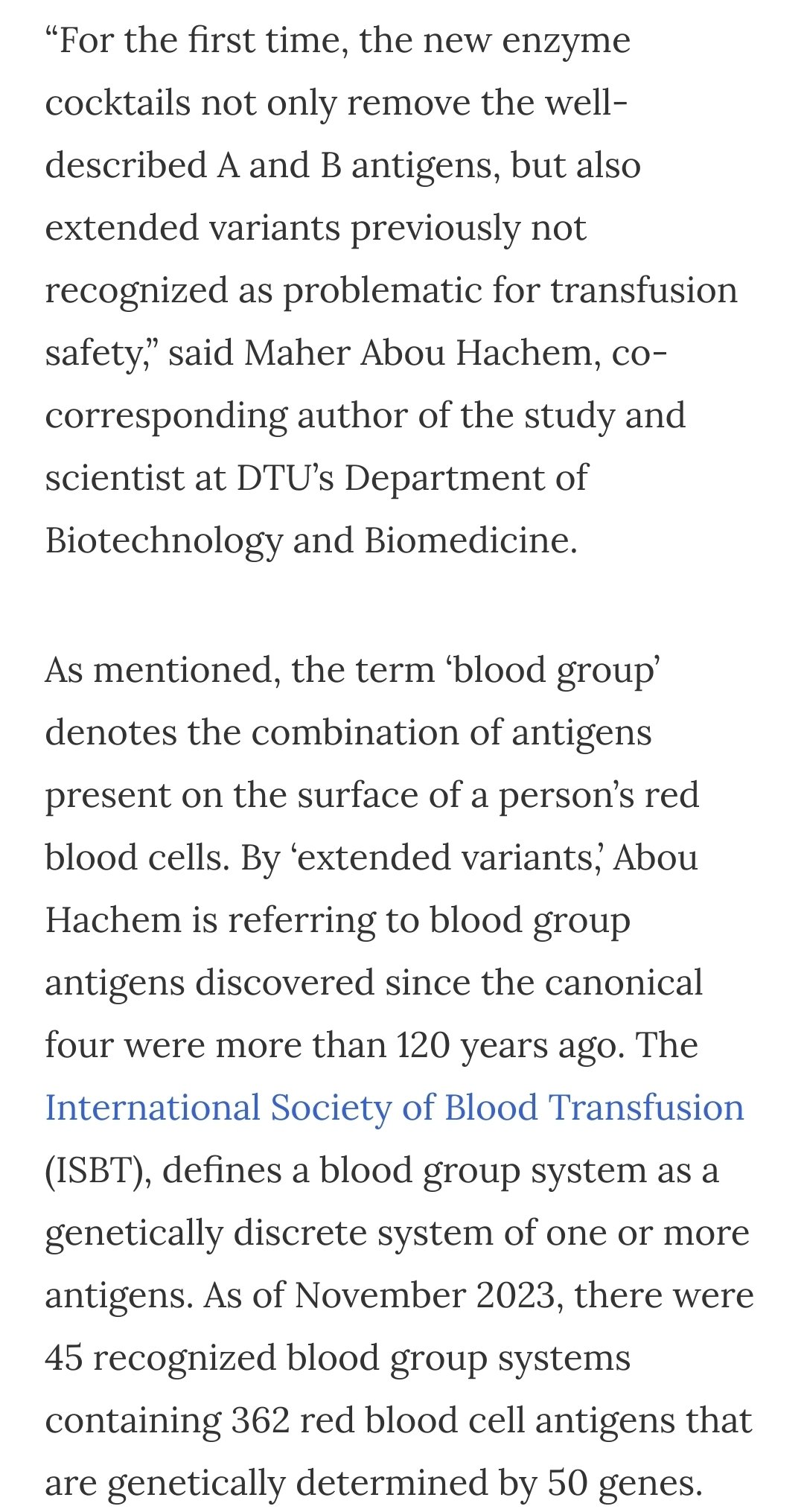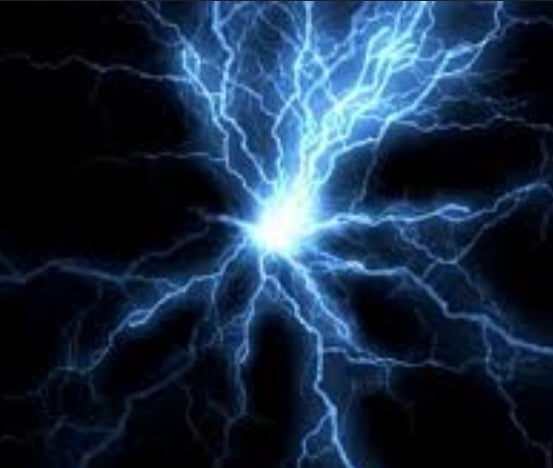- cross-posted to:
- science@lemmy.ml
- medicine
- cross-posted to:
- science@lemmy.ml
- medicine
cross-posted from: https://lemmy.ml/post/15069736
Bacterial enzyme strips away blood types to create universal donor blood
“Researchers at the Technical University of Denmark (DTU) and Lund University, Sweden, have used enzymes produced by a common gut bacteria to remove the A and B antigens from red blood cells, bringing them one step closer to creating universal donor blood.”
Gave this enzyme to my buddy who made the mistake of falling asleep first.
Watch out, first person to fall asleep at the sleepover becomes the friend group’s universal blood donor!
“What did you say about my mother? That’s it…”
Detypes your blood
deleted by creator
Well in an emergency, once can be the difference between decades of life or near-immediate death, so I’d still call this a massive win…
deleted by creator
Fair enough. I guess I’ll stop being excited about the good news and instead focus on how it could have been better 😉
Don’t whine. You were presented with a learning opportunity and your reflex was to be shitty? That’s not very mature, son. Do better.
I’m not whining, just teasing the one who, in spite of agreeing that it’s definitely a win, saw it necessary to yuck on everyone’s yum in UPLIFTING News of all places. 🙄
This group is meant as a more hopeful counterweight to all the negative stuff in all other news groups and, for some, help not feeling that the world is only irrevocably fucked up. To be a wet blanket in such a group is a SPECIAL level of grouchiness lol
Hard agree! Thank you for saying this!!
one of the problems with scientific literacy today is that on the web the value of nearly every new study, drug, technique, etc is overstated by both the media and the public. This is probably because overstating things increases engagement.
Imo things can just be small steps in the right direction and that’s ok.
Man, science communication is in a bad spot if all they’re doing is blunting people’s expectations and, as the previous user very aptly mentioned “yucking everyone’s yum”.
This is why people make fun of Neal Degrass Tyson, many times his explanations are both pedantic and unnecessary, which I would argue is the same as the comment that started this thread.
Especially when what they were talking about was actually listed in the article!
deleted by creator

They specially mention this in the article. It does work on multiple antigens beyond ABO, they even list that there are over 40 blood types that we know of with 300+ antigens.
Did what you do at a blood bank involve an education or just a name tag, cause they have receptionists and hourly workers at blood banks.
I believe “Vampire-fluffer” was their official title.
As a side note, I derived silly amounts of joy from this one simple action:

deleted by creator
Clearly, “Vampire-fluffer” is too far over the top to be considered anything but pure silliness.
Unless I’ve accidentally stumbled on something close to the truth? 😄
deleted by creator
I don’t feel like they were expecting this to change a lot right now - it’s a stepping stone
bringing them one step closer to creating universal donor blood."
How many people do receive more than one blood transfusion on average? Seems like something that doesn’t happen often, and maybe this could make it easier for the most common uses of donor blood?
I’m sure nothing bad will come from this.
In other news, the Umbrella Corporation announced their IPO.
Is it cost effective?
Probably not at this point since it’s still being developed, but hopefully it will be!
Given time, yes. Enzymes are easy to mass produce once development is done with them. For example, Horseradish Peroxidase is used in many biochemical tests in medicine and labwork is an enzyme. It’s manufactured using yeast rather than purifying from horseradish roots, making it very affordable and commonplace in many assays.
The papers enzyme comes from bacteria living in the human gut, meaning that it should be relatively easy to just grow the bacteria in lab settings and extract the enzymes from that. If it is challenging to grow the bacteria in lab, then they can add the gene from the bacteria into a yeast, like what was done with HRP.







